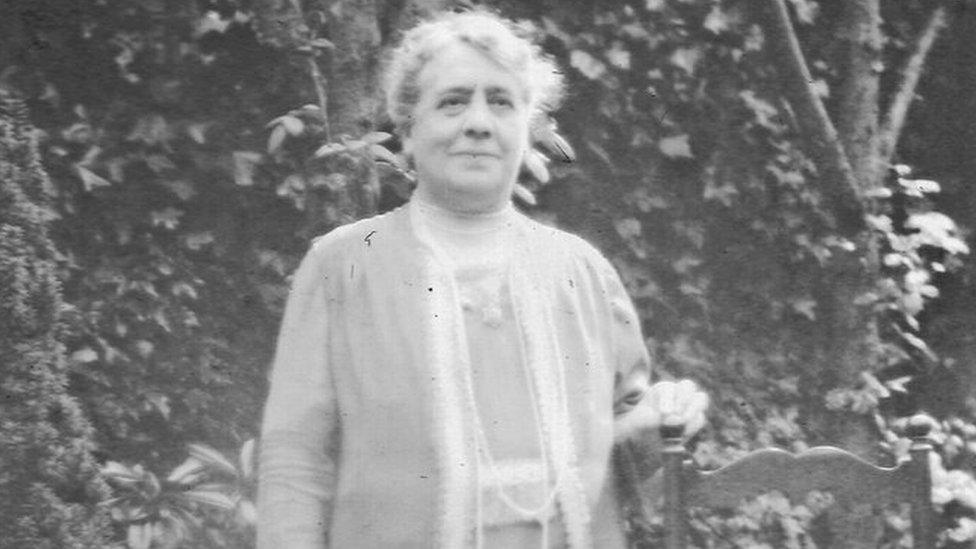Apocalypse display comes to home of Bedford religious group
- Published
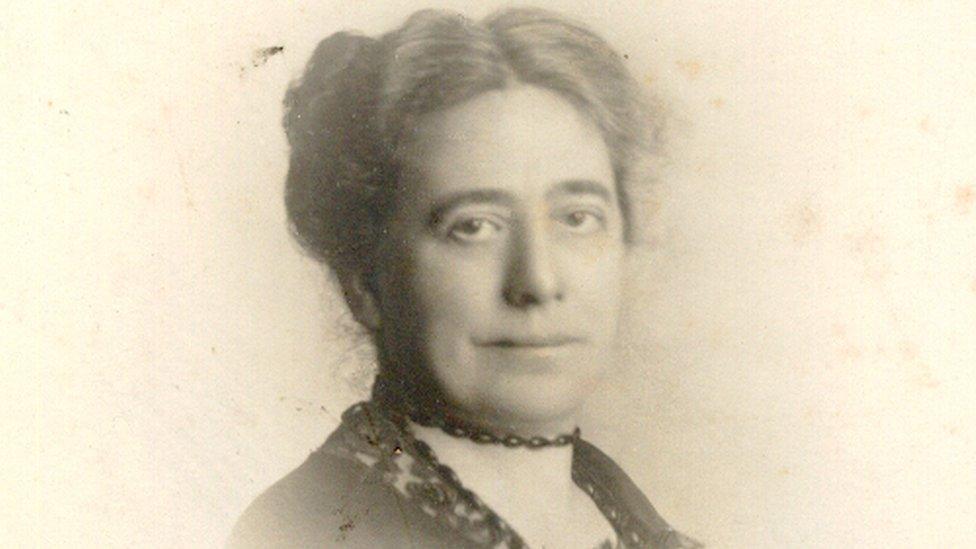
Mabel Barltrop founded her religious community in 1919
An exhibition that explores the apocalypse is being held at the home of a defunct Christian group that believed its members were immortal.
Rhyme, Reason & The Apocalypse has opened at the Panacea Museum, Bedford.
Mabel Barltrop founded the Panacea Society in the town in 1919, and styled herself as Octavia, the eighth prophet.
Prof James Crossley said it will showcase the weird, wonderful and peculiar side of religion and language related to the end of the world.
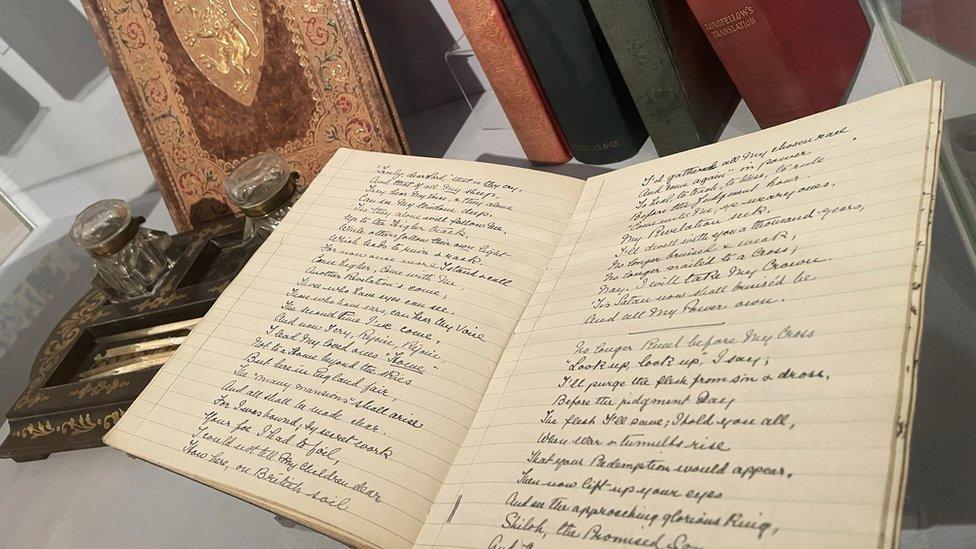
The museum opens from Thursday to Sunday
The group, which ceased to exist in 2012 when its last member died, believed that the end of time was imminent and that they would spend their immortal days in a new Garden of Eden - which would be recreated in their grounds on Albany Road in Bedford.
Prof James Crossley, the academic director of the Centre for the Critical Study of Apocalyptic and Millenarian Movements - based at the museum - said the exhibition aimed to "showcase some of the weird, wonderful and peculiar sides of religions, history and language in this country".
He said the influence of apocalyptic beliefs can be found in famous poetry, including The Wasteland by TS Eliot and The Second Coming by WB Yeats, and everyday language - "the four horsemen of the apocalypse, the second coming, anything to do with the end of the world".
"People still use the word messiah for someone who changes the rules - from a footballer or politician to a future figure who will lead people to either salvation or a triumph," he said.
"It's very popular in films like The Hunger Games, zombie films, The Waking Dead TV show, because it lends itself to fiction very well as it's also about fears."
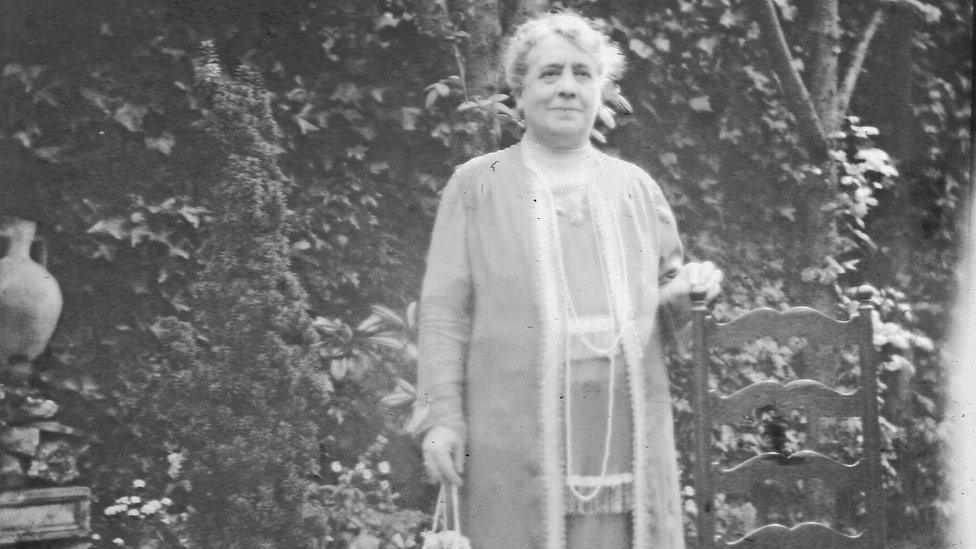
Mabel Barltrop styled herself as "Octavia - the eighth prophet"
He said in the 20th Century using the term "nuclear apocalypse" was popular and talk of an "environmental apocalypse" was common in the 21st Century.
"They're not completely alien [concepts]; they might happen; it's not impossible, it gives people a way of thinking and plays to those fears," he said.
A lunchtime talk will take place on Thursday and the exhibition runs until 25 November.
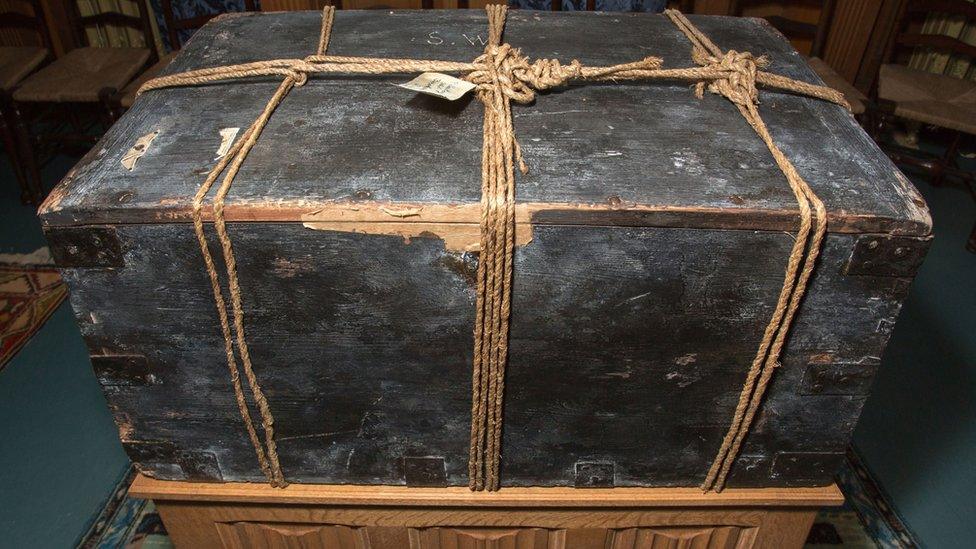
A replica of various prophesies of Joanna Southcott are kept in a sealed box within the museum

Follow East of England news on Facebook, external, Instagram, external and X, external. Got a story? Email eastofenglandnews@bbc.co.uk, external or WhatsApp 0800 169 1830
Related topics
- Published27 April 2023
- Published17 November 2019
